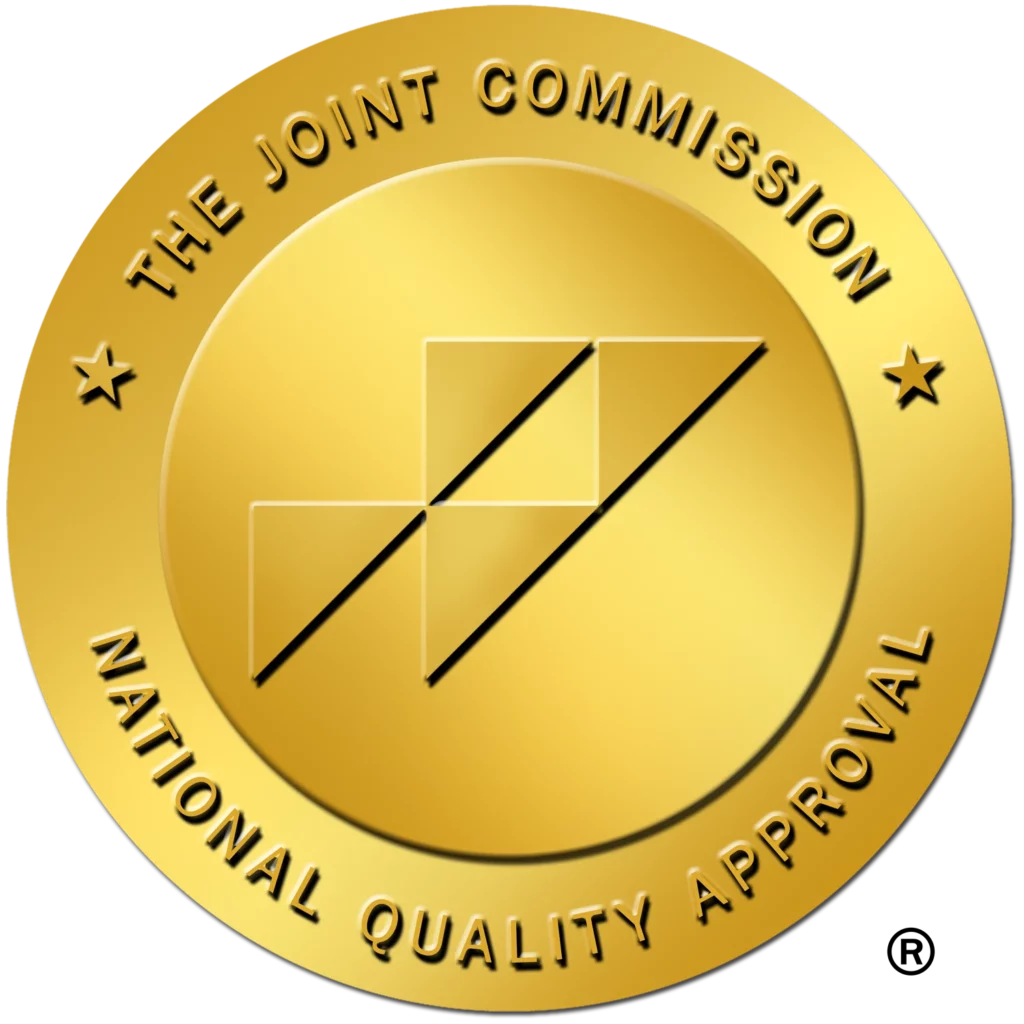Inpatient vs Outpatient Rehab: Which One is Right For You?
This entry was posted in Drug Rehab and tagged inpatient alcohol rehab, inpatient drug rehab, inpatient vs outpatient rehab, outpatient alcohol rehab, outpatient drug rehab on January 24, 2020 by Justin Baksh, MS, LMHC, MCAP, Chief Clinical Officer.

So you’re considering addiction treatment. If you are still using drugs or drinking, the first step is to go to a medical detox facility (usually a five-to-seven-day stay). After all, withdrawal symptoms can be serious, even potentially life-threatening. But what happens after that? Should you go to an inpatient or outpatient rehab?
What is Inpatient Drug Rehab?
Inpatient drug rehab treatment is similar to being admitted to a hospital. You are admitted to a facility and “live” there day and night, receiving treatment and being monitored, until you leave or are discharged. Some people choose to go straight into inpatient rehab from detox. Those that do, typically stay 30 days.

What is Outpatient Drug Rehab?
With outpatient drug rehab, on the other hand, you live at home and travel to the facility for treatment.
There are three levels of outpatient rehab: partial hospitalization, intensive outpatient and outpatient. These levels refer to the intensity, or number of hours of treatment completed each week.
- Partial hospitalization is a full-time program of up to 40 hours or more of treatment per week. Your medication, should you need any, will likely be parceled out to you as you progress, and you won’t have any outside contact (that is, your cell phone) during treatment hours. However, after you leave for the day, you regain control of your life. While you can live at home during partial hospitalization, some choose to live in a sober living residence so that they will still have a structured environment outside of treatment.
RELATED: Find out about Foundations Wellness’ partial hospitalization program
- Intensive outpatient treatment is the next level down in terms of intensity. It typically runs from nine to 15 hours of treatment weekly. All or a part of that time will be in group sessions with a trained counselor, and individual therapy may be included as well. Most intensive outpatient treatment programs run during the day, but there are evening programs which allow clients to continue to work a full-time day job or maintain other commitments while receiving treatment.
RELATED: Find out about Foundations Wellness’ evening intensive outpatient program
- Fully outpatient care is yet another step on the treatment continuum. It is usually one to three hours of treatment a week. Those in fully outpatient care live their lives where and how they please the vast majority of the time, traveling to their chosen facility for therapy. This is comparable to seeing a psychologist or licensed mental health professional on an ongoing basis, or to going to a physical therapist for an injury. Both of these scenarios are also considered fully outpatient care. At this stage of treatment, the person in recovery has reached a high level of personal responsibility. In other words, you wouldn’t want to put a person who is using heroin or methampethamine straight into fully outpatient care, even after detox – it’s not going to work. There’s a high chance of failure there!
RELATED: Find out more about Foundations Wellness’ outpatient program
The important thing to remember, though, is that people leaving detox have choices.
They can choose to go to an inpatient facility or straight to an outpatient facility for partial hospitalization, of course.
They can also complete an inpatient stay and then add on the outpatient levels of care to extend treatment, thereby taking advantage of maximum level of support for their new lives in sobriety. This is not a bad idea, as research shows that length of treatment is a factor in a successful recovery.
In a review of three research studies published in American Journal of Drug and Alcohol Abuse in 2004, it was found that women who spent six months (or more) in addiction treatment had higher success rates at staying sober for at least 12 months than did those with shorter treatment periods. As you can imagine, successfully completing treatment was also a factor.

Is Inpatient Treatment More Effective Than Outpatient Treatment?
In a word, no.
Numerous scientific studies – dating back to the 1980s and beyond – have shown found that inpatient treatment is no more effective than the same treatment of the same duration received via an outpatient treatment center.
In other words, the setting in which treatment takes place does not matter.
In her contribution to the 1986 book Advances in Alcohol & Substance Abuse, Helen M. Annis, PhD, CPsych, cited numerous studies concluding that:
- Inpatient held no advantage over outpatient in terms of effective treatment (even when patients were measured months later)
- Attrition rates (the rate of those not completing treatment) in inpatient facilities was shown to be “as high or higher” than outpatient centers
- Those who were treated on an outpatient basis were less likely to be readmitted to inpatient or hospital care
- Treatment is significantly less expensive for outpatient programs – even up to one-half the cost.
Annis cites one estimate that put the savings at $3,700 per patient for outpatient treatment versus inpatient treatment. Of course, that was in 1986 dollars. Today, that would be an estimated $8,631.
In any case, you (or your insurance company) is looking at a significant savings should you choose an outpatient versus an inpatient program.
Back in 1986, inpatient treatment was the norm, as Annis tells us:
“[In] the United States, an increase has been reported in the number of alcoholism units in general hospitals. It seems that general hospitals are finding such units, offering a three-to-four-week inpatient programme for alcoholics, attractive sources of revenue as declining admissions create surplus beds and mounting overhead costs. Diesenhaus has pointed out that these inpatient facilities tend to admit alcoholics who are married, employed, socially stable and who have experienced only a few years of heavy drinking, thereby creating a paradox in that those alcoholics with the best prognoses are more likely to be admitted to the most intensive and expensive treatment settings because of the greater availability of third-party coverage for inpatient settings.”
Annis also mentions a U.S. Government Office of Technology report released the previous year which concluded that alcohol addiction treatment had “developed around what [was] reimbursable.” It also called the reaction of insurance carriers to the mounting evidence as “slow.”
That was then; this is now.
In fact, as Anne Fletcher pointed out in her 2013 book Inside Rehab, insurance companies did eventually recognize this and flipped the model by cutting reimbursements for inpatient facilities:
“After numerous studies showed no difference in how people fared after going to residential versus outpatient programs, insurers and other funding sources drastically cut back on paying for residential rehab. Today, various forms of outpatient help comprise more addiction treatment experiences in the United States than residential stays.”
As early as March 2002, 90% of patients were in an outpatient treatment, according to the annual National Survey of Substance Abuse Treatment Services. Outpatient treatment was found to be the most “widely available” level of care for drug and alcohol addiction by the survey, with 81% of facilities offering it.

The Outpatient Advantage
It’s not all about saving money. It’s also about learning to live again in a newly sober state of mind.
Successfully adapting to the real world again is essential after recovery, as Annis points out:
“A patient’s behavior on an inpatient unit is not predictive of the adjustment that he/she must make to cope successfully in the outside community. It is perhaps not surprising, therefore, that relapse rates as high as 60-80% have commonly been reported by three months post-hospital discharge.”
Outpatient treatment allows the newly recovered to test the waters, try new techniques, and see where the pitfalls lie. They can make adjustments to their newly established sober lives as they go – discovering what works and what doesn’t – while still having the supportive net of continuing outpatient treatment to fall back on. It’s like having sobriety training wheels.
The Final Word
Addiction is a disease that can require treatment for months – maybe even years.
Sound like a long time?
Think about someone with heart disease or diabetes. They know they will have the disease for the rest of their lives… it’s chronic. Still, they make adjustments such as eating better, taking insulin, and exercising in order to prevent complications – just as the addicted take the steps necessary (such as 12-step meeting attendance and avoiding triggers) to prevent relapse.
If something happens – the blood sugar stays too high for too long in an individual with diabetes, or someone with heart disease has a heart attack – more intensive treatment is needed, just as someone who has relapsed may need to go back to rehab.
Therefore, the notion that a 30-day inpatient stay is going to cure all is erroneous. The treatment path needs to be tailor-made for each individual, taking their unique situation, physical and mental health, and circumstances into account.
If you are considering addiction treatment of any kind – inpatient or outpatient – you will need to be evaluated by a qualified professional. Most (if not all) addiction treatment centers today will do a thorough assessment of your current state before they ever start treating you.
It is helpful to know, though, that going to an outpatient treatment center is just as effective as an inpatient one, especially if you have full-time commitments you can’t shake. After all, some of us can’t take 30 days or more off of work, or life in general.
RELATED: Find out why addiction is considered a disease
See stories of people who’ve gone through rehab and are still sober
Why are there so many rehabs in Florida?










